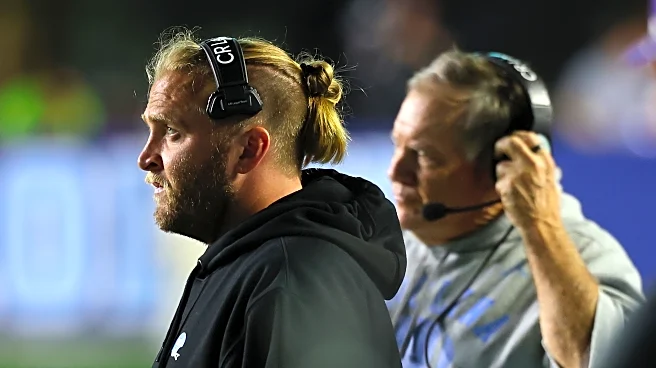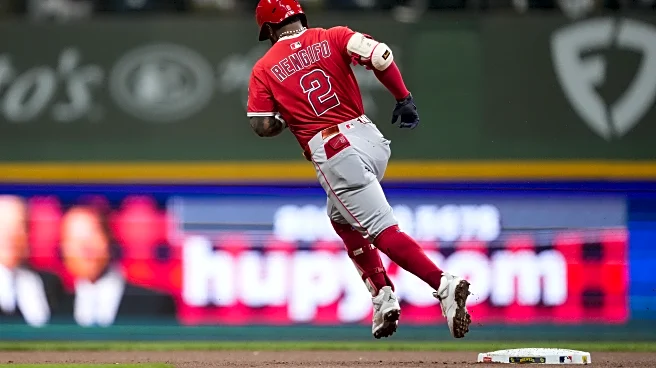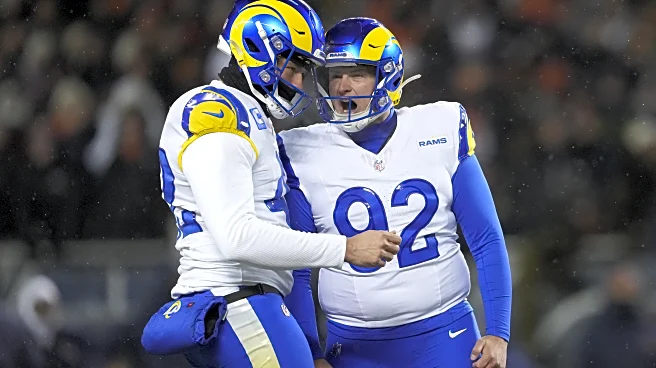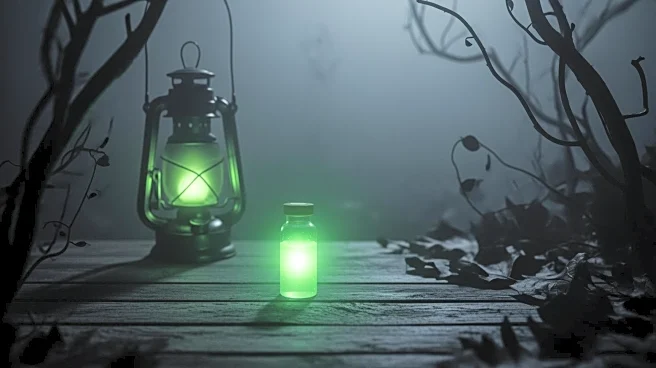As is too often the case for UNC football, the moment we’d all been waiting for came and delivered like a wet fart. After months of excited speculation, in Chapel Hill and beyond, about what this team — coached by a legend in Bill Belichick making his college debut, backed by an investment in the sport the likes of which hadn’t been seen at UNC, with a three-quarters new roster — might look like, the answer ended up being, well, not good.
The lack of talent up and down the roster was too much to be
mitigated by any coaching advantage that Belichick may have provided, and there were concerning larger trends concerning the sidelines, to boot, as UNC was run roughshod over by the TCU Horned Frogs. Welcome back to Tar Heel Blog position grades, where we break it all down.
Quarterbacks: D
Gio Lopez briefly looked every bit worth the aggressiveness that Belichick’s staff had pursued him with this offseason, hitting Jordan Shipp for two nice completions on UNC’s first drive of the season. One of them was a 39-yard beauty on a crossing route that absolutely diced up the TCU defense. After that, though, things got ugly fast. The few called runs for him went nowhere, with all his dynamism and vision as a runner from the South Alabama tape completely missing. He didn’t get a ton more opportunities to throw, and the ones he did get went badly — none more so than an absolutely telegraphed pass to Shipp in the flat that got predictably pick-sixed.
He gave TCU another seven points when he fumbled on a hit outside the pocket that also injured him badly enough to take him out of the game. Max Johnson came in for backup duty and looked at least better than he did last year, zipping a couple of balls around and hitting one gorgeous hole shot downfield, but he also flubbed a handoff by putting the ball on Davion Gause’s hands instead of in his gut, causing another fumble.
I don’t think a few completions in garbage time change much about his evaluation, though. Bottom line is that the Tar Heels are going to need better play from the signal-calling position, whether it comes from Lopez, Johnson, or Bryce Baker, if they’re going to recover this season.
Running Backs: C-
Again, on the first drive of the game, UNC running backs were simply knifing through the Frogs’ defense. Caleb Hood started and was getting positive yardage on every carry he took, including a nifty eight-yard rush into the end zone. Benjamin Hall looked like a decent change of pace, if a little slow. And then, with everything else, things completely changed. There weren’t a ton of holes as the game went on, but UNC backs, whether it was Hood, Hall, or Davion Gause, were going down way too easily and not executing the fundamentals: pressing gaps and churning legs.
It wasn’t helped by a game plan that was leaning excessively on trying to run the ball and shorten the clock to the point of predictability, but at the end of the day, just barely scraping three yards per rush from running backs isn’t going to win games.
Wide Receivers and Tight Ends: C+
Well, my slightly against-the-grain pick of Jordan Shipp as this team’s offensive MVP looks pretty good after a game. Shipp was involved in just about every positive play UNC made through the air, minus Johnson’s hole shot to Vari Green. He might not have the straight-line speed to simply outrun a defensive back deep, but his ability to separate on in- and out-breaking routes stood out, as well as his strong hands. Green made a nice play on a ball that Johnson almost dirted to him to secure a first down, when those were in short supply.
And, on the tight ends side, Jake Johnson at least gave us a nice story when he caught a touchdown from his brother well after the game had stopped being competitive. Other than that, there wasn’t a lot of opportunity for receivers to shine, though Chris Culliver had a really bad drop on a Lopez deep ball that surely won’t endear him to anybody.
Offensive Line: D
I can only find so many ways to say the same thing: On that first drive, the offensive line looked dominant. Running lanes were wide open, Lopez had a lot of time the two times he was asked to throw, and it looked like the investment and focus on the trenches that had been reported this offseason were really paying off. But when the script ended, so did all that magic.
The line of scrimmage started moving backwards instead of forwards, and with the run game bottled up, the TCU defense was able to pin its ears back and make life hard for Gio Lopez, culminating in that fumble that took Lopez out of the game.
The center position, with starter and best player Austin Blaske out until October, was a particularly weak spot. Both backups, Christo Kelly and Chad Lindberg, were slow and inaccurate snapping the ball and got overpowered way too often after the snap. But there wasn’t really a position or player that made a positive impression.
Defensive Line: D-
If you looked past the hype and really evaluated this team, the biggest red flag for the Tar Heels coming into the season was that they had lost, and not really replaced, a significant amount of talent from a defensive line that wasn’t even all that good last year. That manifested and then some for about 50 minutes on Monday night, after a first-drive three and out that featured a forklift and a thump from Leroy Jackson that made me think he’s a player to watch.
Even with heavy rotation on the line, though, they got gassed quickly, and TCU’s offensive line just mauled their counterparts, protecting their quarterback and opening truck-sized lanes for their running backs, giving the TCU offense big play after big play: 35 rushes gave them nearly 260 yards and two touchdowns.
Linebackers: C
Andrew Simpson and Khmori House, starting together at linebacker, both put respectable lines up: Simpson with 11 tackles (7 solo) including 1.5 for loss, and House with 7 tackles including 1.5 for loss. A lot of those tackles came too far down the field, though, and while it wasn’t all their fault with the defensive line getting as bullied as it was, they also weren’t making things happen and creating negative or defensive momentum-changing plays so much as allowing the plays to happen in front of them. They were responsible for most of the pressure that UNC was able to create on TCU’s quarterback, including heating him up for a red-zone interception.
They also got beat to the edge on too many runs, including both of TCU’s long touchdowns. Maybe that changes with less trash in front of them impeding their sideline-to-sideline work, but it is what it is.
Secondary: D-
This unit was the most disappointing of the night, and is saved from a failing grade only by Kaleb Cost’s acrobatic interception that threatened to give the Heels some life when the game was only starting to slip away from them. Marcus Allen, in particular, had certainly his worst game ever as a Tar Heel.
Far from competent coaching sharpening his technique and turning him from a good-but-frustrating player into a legit star as I thought could happen, he looked uncomfortable when asked to click and close in zone, was simply beat deep on TCU’s first touchdown in man after getting out-bodied at the catch point, and, most gallingly for a Belichick defender, was an absurdly weak tackler after the catch and in run support alike. TCU targeted him with Thad Dixon locking up his man on the other side, and after being called for an early phantom pass interference on what looked like perfect coverage, he appeared to get in his own head and failed to rise to the occasion.
Cost and Will Hardy were their typical selves at the safety position, physical when they could get a body to the ball but too often a step slow to do so. For one of the most theoretically talent-rich position groups on the roster, the defensive backs besides Dixon looked just bad. I have questions about scheme and playcalling for a lot of how the offense looked, but here, it’s just plain bad football.
Special Teams: C-
To my great chagrin, Enemy of the Show Tom Maginness is still punting in Chapel Hill, and even with the special teams aficionado that is Bill Belichick in town, not much has changed. He had a couple of good kicks, but a whole host of bad ones, including a 25-yard squib caused by his own mishandling of a perfectly fine snap. It was a pretty impressive play to get the punt off, but he wouldn’t have had to make that play if he’d simply done his job.
Chris Culliver also needs to stop returning kickoffs out of the end zone. He’s got some skills, but he didn’t beat the yardage he would’ve earned from a touchback a single time. Again, that’s a bizarre lack of awareness given what we know about the guy in the hoodie on the sideline.
Coaching: D+
It does not take a rocket scientist to understand that when you are at a talent disadvantage, you maximize your chances at winning by running the ball for decent gains, minimizing the number of possessions and shortening the clock, and hoping that the prolate spheroid bounces your way a couple of times to swing the game in your favor.
It was no secret coming into the season that this was going to be Belichick and Freddie Kitchen’s gameplan on offense, with a general dearth of talent and a particular delta between the experience of the running backs group and the receivers on this team. They got a quarterback in the transfer portal known for his dual-threat ability and committed a ton of resources to rebuilding the offensive line with a bunch of maulers. It worked for one beautiful, scripted drive.
But the run-run-pass sequence, almost self-parodical in the way it mirrors what so many Monday morning quarterbacks love to criticize about conservative coaching, got way too predictable, and as TCU was able to stonewall first- and second-down runs, Kitchens gave up on as many third-and-longs as the Heels failed to convert naturally. As an aside: Explosive plays are not that hard to come by in college football, so the NFL risk-averseness of calling simple runs on third and long to avoid turnovers is even less justifiable than it is in the pros, and I hate it there, too.
It’s hard to say that Lopez deserved trust in his arm to make plays after seeing what he’d done throughout the game, but if you don’t trust your quarterback, you should not be starting that quarterback. I liked Lopez’s tape when I checked him out as a transfer, but maybe he’s not ready for high-major ball or maybe something’s up physically other than this new injury. In that case, Johnson looked like a capable game manager, at the very least, even if I’m low on him moving forwards, and recruiting crown jewel Bryce Baker could certainly use some reps and a shot at becoming the face of this new program.
TL;DR: the offensive playcalling was staid, predictable, and unadaptive, and the personnel management at the offense’s most important position looks suspect. Maybe it was an opening-night aberration; maybe TCU is just so good that the only quarterback production they were ever going to allow was in garbage time; all I’m saying is that I have serious questions about the job that Kitchens has done leading up to this season and that he did Monday night, in a role that he never really seemed qualified for.
As I said earlier, I can’t criticize defensive coaching the same way because most of the defensive problems looked more like personnel problems than issues with playcalling or even execution. Marcus Allen regressing that hard is certainly at least a yellow flag, but that could easily just have been a mental issue, as I alluded to earlier. But overall, they just didn’t have guys who could make plays against an experienced, well-coached offense. It’ll be easier to judge them on Saturday, when they’ll be playing with, at least on paper, the talent delta on their side.















